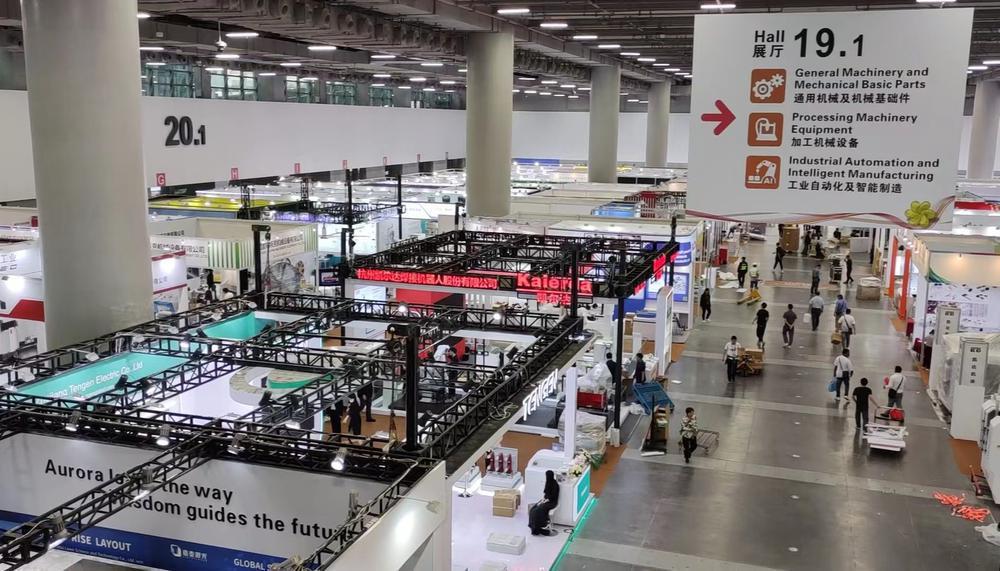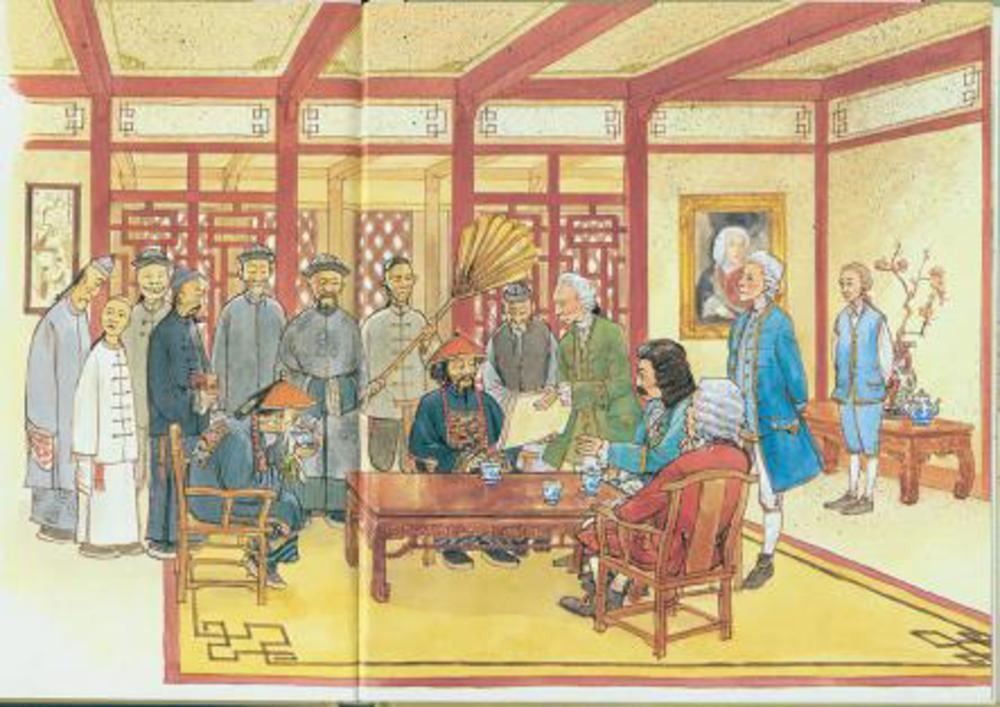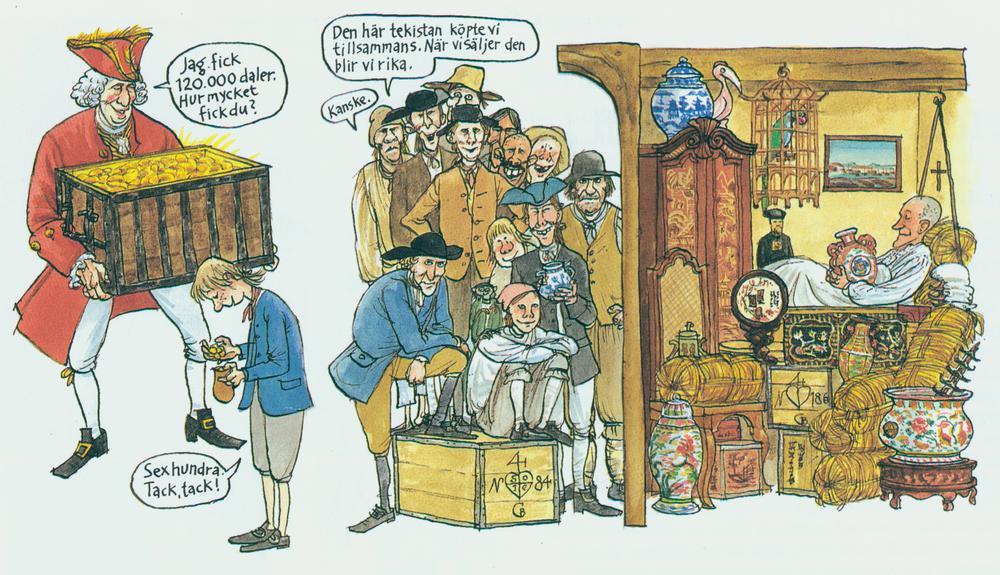At present, the second phase of the 133rd China Import and Export Fair (Canton Fair) has already started.

The Canton Fair has been held for 67 years and is known as "China's Biggest Exhibition". Tracing back the long history of the Canton Fair, Guangzhou already began to hold seasonal commodity fairs with other countries during the Ming and Qing dynasties. Almost all major countries and regions in Asia, Europe and the Americas have had direct commercial relations with Guangzhou.

From the Qin and Han dynasties, Guangzhou, located on the hub of the western coast of the Pacific Ocean, was the most famous trade port in the world at that time. In the 16th century, under the supervision of maritime trading-ship offices Shibosi, the Shibo trade between China and foreign countries gradually increased its proportion in Guangzhou's overseas trade. In the Eighth Year of the Wanli Period (1580), the government began to hold two international trade fairs in Guangzhou in two different monsoon seasons each year. The fairs usually were held in January and June, each lasting two or three months. The Spring Fair in January mainly received merchants from the South Ocean, Indian Ocean, and Europe, while the Summer Fair in June received merchants from Japan.

During the Qing Dynasty, Guangzhou's overseas trade reached its peak. In 1685, the government opened the sea ban and established four customs offices in Jiangsu, Zhejiang, Fujian and Guangdong. Later in 1757, only the Guangdong Customs was kept because of the policy of Canton System in which merchants"were only allowed to anchor off and do business in Guangdong" and the Thirteen Hongs were assigned to manage foreign trade. As a result, Guangzhou became the only port that could communicate with Western countries.
The ancient Canton Fair exported silk, porcelain, tea and soil cloth, and imported wool textiles, cotton, metals and spices from foreign countries.
Of course, at the time, there were not as many translators as nowadays. As a result, in the process of commercial business, a Pidgin English mixing Cantonese and English came into being. Such English does not follow the correct grammar but conforms to the Chinese language logic. For example, the sentence "Chin-chin, how you do, long time my no hab see you" actually means "This way, please! Hello! Haven't seen you for a long time."
At the beginning of the nineteenth century, there were also many vocabulary books of such English on the streets of Guangzhou. The books contain many of the necessary words for daily life and trade. Those words are mostly written in Chinese with Cantonese pronunciation to annotate English words.
The policy of Canton System lasted for 85 years, and the Thirteen Hongs witnessed the history of China's foreign commercial trade and cultural exchanges in modern times. In 1856, a fire broke out in the commercial district of Thirteen Hongs, after which it faded out of history.
After the founding of the People's Republic of China, in 1951, to strengthen the circulation of commodities, the South China Local Specialties Exhibition was created at the former site of the Thirteen Hongs. The exhibition was the predecessor of the Canton Fair. In 1957, the national government approved the holding of the Canton Fair in Guangzhou every two years, which became an important window for China to open to the world.
数百年前的“广交会”,你要说“广式英语”
目前,第133届中国进出口商品交易会(以下简称“广交会”)第二期正火热进行中。最新数据显示,4月15—19日举办的第一期展览面积和进馆人次均创历史新高,到会境外采购商6.6万人,出口成交128亿美元。
广交会已经举办67年,被誉为“中国第一展”,但沿着历史长河再往前溯,明清时期广州就开始举办季节性的中外商品交易会,亚洲、欧洲、美洲的主要国家和地区几乎都与广州发生过直接的贸易关系。
从秦汉时期起,位于太平洋西岸枢纽位置的广州,就是当时世界上最为著名的贸易大港。16世纪,市舶贸易,即在市舶司管理下中外通过海运互市,在广州海外贸易中的比重逐渐增加。万历八年(1580年),官府根据两次不同的季候风,开始每年在广州举办两次中外商品交易会,通常在一月与六月,每次为期两三个月。一月的“春季交易会”,主要是从南洋、印度洋、欧洲来的客商;六月的“夏季交易会”,则主要是从日本来的客商。
清朝时,广州海外贸易达到鼎盛。1685年,清廷开放海禁,设立江、浙、闽、粤四海关。1757年,清廷独存粤海关,实行番商“将来只许在广东收泊交易”的“一口通商”政策,并由十三行专营对外贸易,广州成为唯一能与西洋航海国家通商的口岸。
旧时的“广交会”会出口的当然是丝绸、瓷器、茶叶和土布之类,而从外国进口的是毛织品、棉花、金属和香料等。
当时翻译人员当然没有现在多。在谈生意、做买卖的过程中,一种中英混杂的“广式英语”就产生了。“广式英语”很多时候没有遵循英语的语法,却符合中国人的语言逻辑。比如:“Chin-chin,how you do, long time my no hab see you.”意思是:请请,您好! 好长时间没有见。

十九世纪初,广州街面上还出现了许多广式英语的词汇书。这些词汇书中收录了许多日常生活和贸易的必备词语,大多是用汉字记录,以广州方言来拼写的英语词汇。
“一口通商”政策持续了85年,十三行见证了近代中国对外商业贸易、文化交流的历史。1856年,十三行商馆区发生大火,十三行从此淡出历史舞台。
1951年,为加强商品流通,“华南土特产展览交流大会”在十三行旧址上创设,这便是广交会的前身。1957年,国家批准在广州举办一年两届的广交会,成为中国打开通向世界大门的重要窗口。
文|羊城晚报全媒体记者 李焕坤 谭铮
音频|羊城晚报全媒体记者 谭铮
翻译|刘佳慧
责编|王瑜瑛









